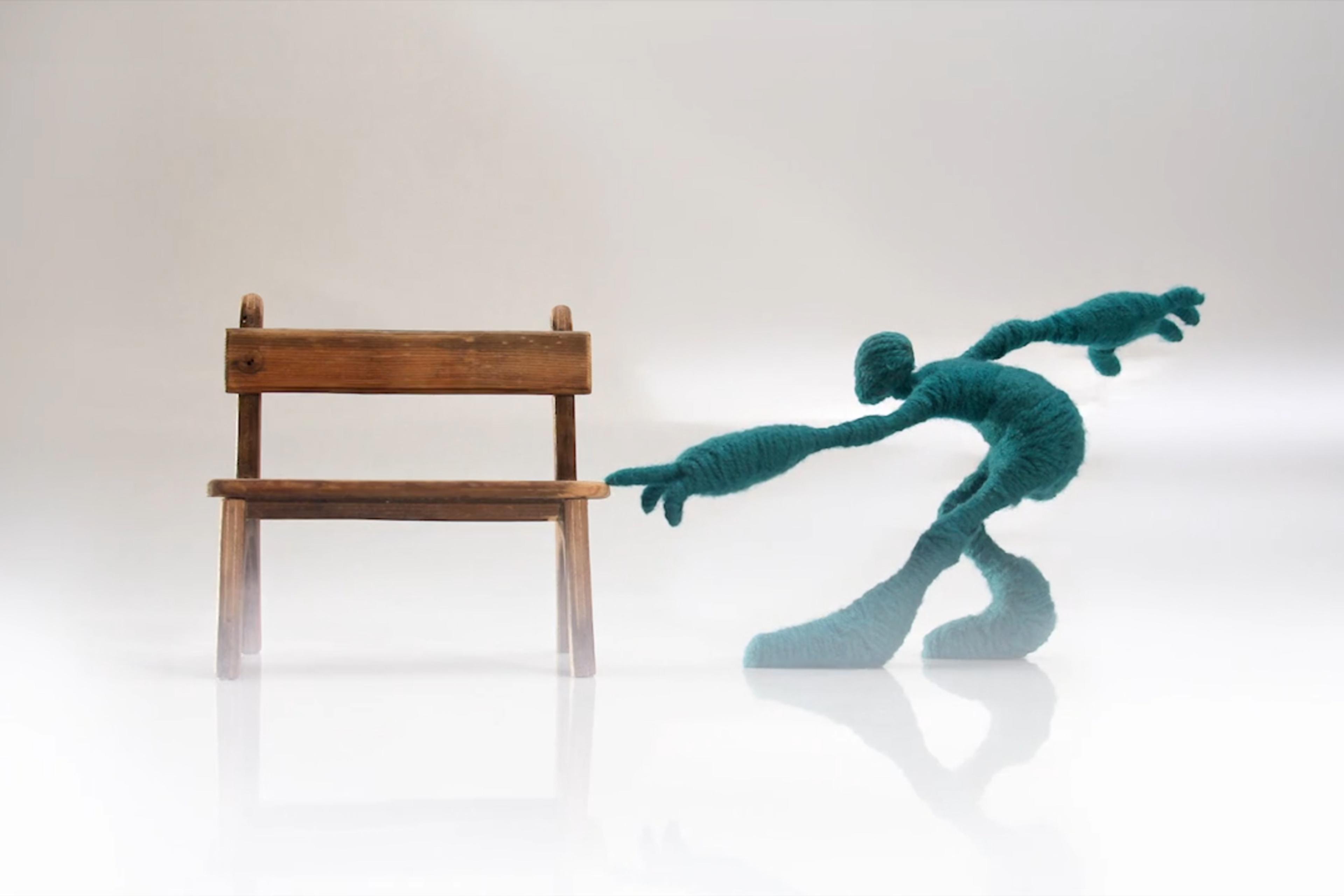An absorbing, affecting story doesn’t always need to be built through sophisticated plotting, careful character development or sharp dialogue. Sometimes there can be substance in the style. Such is the case with the Dutch filmmaker Lucette Braune’s short film Through You (2013), which is woven together with a wisp of a story and not a single word of dialogue. Yet, through its clever visuals, Braune builds the work into something relatable and often enchanting, offering an imaginative take on what it means to be a human among fellow humans.
The animation opens with a young woman in an apartment, tracking her as she makes her way out into the world on a simple run to the grocery store. When she moves along a crowded city street, the scene transforms into a collection of colourful two-dimensional human figures set against a black backdrop. As she passes by – and indeed, through – strangers, their colours flicker and shift, illustrating each small collision’s emotional contagion effect. The woman struggles through some of these human forms, while others she passes through with relative ease. At one point, she appears to progress through the stages of a relationship with a man she encounters – from the excitement of their first meeting, to the joys of romance, to the anger and confusion of a breakup – before he fades back into the crowd. Whether this is a daydream, a memory or a premonition of what’s to come after a chance run-in on the street is for the viewer to decide.
With its simple premise and a score that plucks at the emotions, the film’s mood evokes the amiable charms of a Pixar short. But the narrative is also somewhat indirect and without a clear resolution, lending the film a slight air of arthouse impressionism. And indeed, Braune does seem to be navigating between the worlds of accessibility and abstraction in the work, writing: ‘I often find it hard to really tell “structured dramatic stories”,’ adding, ‘I hope the love story somehow gives people enough structure to also enjoy the film in a more “dramatic” way.’ But even if the story occurs in a colourful haze, her articulate visual metaphor for how tiny, random interpersonal collisions shape our moods – and, sometimes, the rest of our lives – shines brightly through the silhouettes.
Written by Adam D’Arpino







